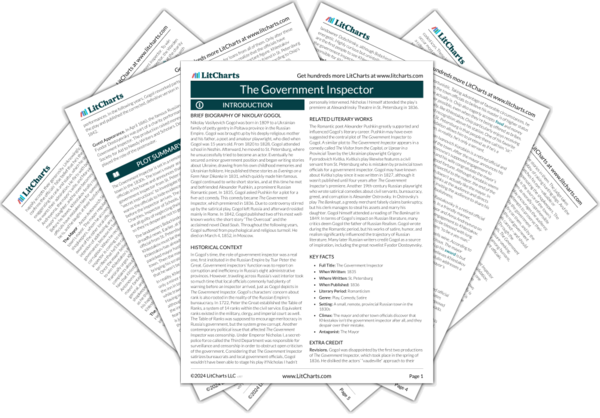The mayor recognizes that he’s deceived himself and has his own folly and vices to blame for his embarrassment. However, the mayor still isn’t repentant for his crimes. Instead, he’s most upset that he’s being laughed at for his mistake. He craves external validation so much that he prioritizes looking good over being and doing good. By encouraging the audience to ridicule the foolish, corrupt mayor, the play satirizes people who try to preserve their positive images while shamelessly committing wrongdoings. At the same time, through the mayor, the play also holds a mirror to the audience, warning them that they might be just as foolish and corrupt as the characters on stage. In this way, the play critically references the flaws of 19th-century Russian society, including real political corruption and human greed, selfishness, and folly.
